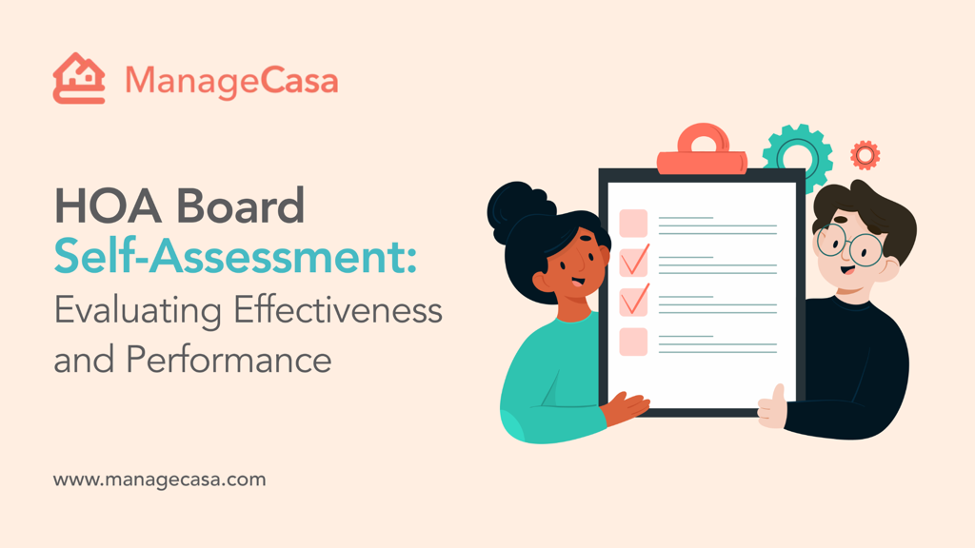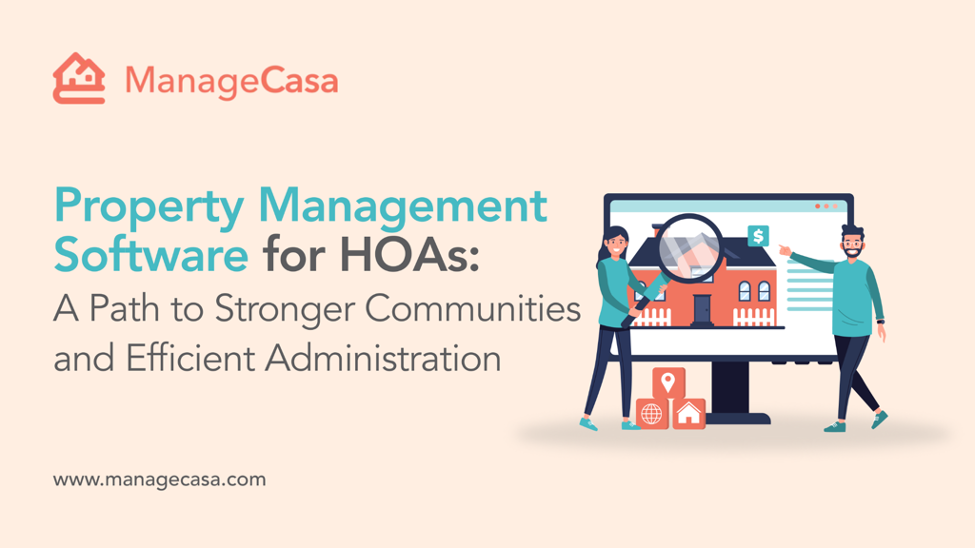Budgeting for HOA: A Complete Guide to Financial Planning for Your Community
Budgeting is your ace when it comes to significant life events—planning that dream vacation, chasing a career milestone, or buying your first home. It keeps you prepared for the unexpected while tackling today’s pressing needs. The same goes for your HOA and community! Like life, your HOA thrives on a solid financial plan to keep things running smoothly.
Think of it this way: a well-structured HOA budget is the GPS for your community’s journey. It keeps finances stable, protects property values, and ensures everyone enjoys a better communal space. In this blog, we’ll walk you through the essential steps, must-have components, and savvy best practices for HOA financial planning.
If you’re a board member navigating the numbers or a homeowner curious about where those dues go, these tips will make HOA budget planning as smooth as a freshly paved neighborhood road. Let’s begin!
What is an HOA Budget? Understanding the Basics
An HOA budget is the financial blueprint for your community. It outlines income sources and allocates funds for maintenance, improvements, and other needs. It is the foundation for effective financial planning and ensures the association meets its obligations without overburdening homeowners. For more on the financial responsibilities of HOAs, check out our blog, Understanding the Basics of HOA Financial Management: A Comprehensive Guide.
Why is it important?
- Supports essential community services like landscaping, security, and utilities.
- It helps avoid unexpected financial shortfalls.
- Guides fee assessments and reserve fund allocations.
Now that you have an introduction to the HOA budget let’s move on to its 2 most crucial components.
2 Main Components of an HOA Budget
A well-planned HOA budget includes two critical components: income sources and expenses. Each element ensures the community's financial stability and smooth functioning.
1. Income Sources
The primary source of income for most HOAs is assessment fees paid by homeowners. These fees are typically allocated to cover operational expenses, build reserve funds, and maintain the community. However, an HOA can explore additional revenue streams to supplement its income and reduce financial strain on residents:
- Assessment Fees: Regular dues are collected from homeowners to manage day-to-day operations and fund reserves. The amount is typically determined by the HOA’s financial needs and community size.
- Event Fees: Hosting community events like fitness classes can generate revenue through participation fees.
- Rental Income: Common areas like clubhouses, meeting rooms, or event spaces can be rented out for private events, contributing additional income.
- Violation Fines: Penalties for breaches of HOA rules, such as improper parking, late assessment fee submission, or landscaping violations , can supplement the budget while encouraging compliance.
Moreover, auxiliary revenues include on-site washers and dryers, vending machines, partnerships or sponsorships with local businesses, community newsletters, advertising opportunities, and utility reimbursements in some instances.
Expanding revenue sources ensures the HOA can maintain financial stability without relying on assessment fees.
2. Expenses
Accurately projecting and managing expenses is essential for maintaining the community’s quality of life and financial health. HOA expenses generally fall into three categories: operational costs, reserve funds, and community enhancements.
- Operational Costs: These are the day-to-day expenses required to keep the community running smoothly, such as:
- Landscaping and lawn care.
- Utility bills for lighting, water, and heating shared spaces.
- Administrative costs, including office supplies, legal fees, and management company services.
- Insurance premiums to protect against liability and property damage.
- Reserve Funds: Reserve funds are crucial for long-term repairs and improvements, such as:
- Roof replacements, road resurfacing, or HVAC system upgrades.
- Unexpected major repairs or replacements to shared facilities.
- Proper HOA reserve fund planning helps prevent financial emergencies and the need for special assessments, which can burden homeowners.
- Community Enhancements: Investing in the community’s amenities improves the quality of life and boosts property values. Examples include:
- Adding or upgrading amenities like pools, playgrounds, or fitness centers.
- Installing walking trails, benches, or community gardens to enhance shared spaces.
- Upgrading security systems or adding surveillance cameras for improved safety.
- Emergency Funds: While reserve funds cover planned expenses, having a separate emergency fund can help address unforeseen issues, such as storm damage or legal disputes. Emergencies can strike at any time. Be prepared with a solid strategy by exploring our blog: Be Ready, Together: HOA Emergency Preparedness Plan.
- Maintenance and Upgrades: Routine upkeep of existing infrastructure and periodic upgrades to maintain aesthetic and functional standards.
After learning the importance of incoming and outgoing for HOA finances, you must’ve realized the necessity of creating a budget. However, don’t worry; simply follow the steps below and devise your community’s personalized budget plan!
7 Easy-to-Follow Steps to Create an HOA Budget

- Gather Financial Data: Review past budgets, financial statements, and expenditure records. Identify trends and account for inflation to ensure accuracy.
- Form a Budget Committee: Include board members, financial experts, and residents. A diverse team ensures balanced decision-making.
- Determine Community Priorities: Consider short-term needs like routine maintenance and long-term goals like infrastructure upgrades.
- Estimate Expenses: Utilize historical data, seek quotes from service providers, and account for potential cost increases.
- Plan for the Reserve Fund: Conduct a reserve study to assess future capital expenses. Allocating funds early ensures preparedness for unexpected repairs or replacements.
- Calculate Assessment Fees: Ensure fees cover all anticipated expenses without being prohibitively high for homeowners.
- Review and Approve: Present the draft budget to the board and community for feedback. Transparency and homeowner involvement are essential during the HOA budget approval process.
Your very first draft of the financial budgeting for HOA may not be the final one. Nevertheless, it will get better with each revision (we can’t promise how many revisions, though!). But fear not; simply explore our HOA budget planning tips.
HOA Financial Management: Best Practices to Follow
Effective financial management is the backbone of a successful HOA. By adopting the following best practices, HOAs can ensure financial stability, homeowner satisfaction, and a well-maintained community:
- Transparency
- Regularly share detailed financial reports with homeowners to foster trust and accountability.
- Host open meetings or forums where residents can ask questions and provide feedback on financial decisions.
- Publish budget summaries and reserve fund updates in community newsletters or HOA portals.
- Regular Reviews
- Perform periodic budget reviews to ensure they align with evolving community needs and priorities.
- Reassess expenses, income, and reserve fund contributions annually to identify areas for improvement.
- Stay proactive by updating budgets in response to economic changes, like inflation or increased vendor costs.
- Professional Advice
- Engage financial consultants or reserve study experts for accurate long-term planning.
- Professional auditors are used to review accounts and ensure compliance with state HOA regulations.
- Seek legal counsel to navigate complex financial matters, such as setting assessments or addressing delinquent dues.
- Technology
- Invest in HOA management software to streamline tasks like dues collection, expense tracking, and forecasting. If you’re looking for it, check out ManageCasa right away!
- Use digital tools for transparent record-keeping, ensuring all financial data is easily accessible.
- Automate reminders for payment deadlines and updates to improve cash flow consistency.
- Emergency Preparedness
- Maintain a contingency fund separate from the reserve fund to cover unexpected events like natural disasters or urgent repairs.
- Create a detailed emergency plan outlining the steps for accessing and using contingency funds.
- Conduct annual risk assessments to ensure emergency reserves are adequate.
By following these best practices, HOAs can ensure sound financial management, reduce potential conflicts, and create a thriving, well-maintained community.
Common HOA Budgeting Mistakes (and How to Avoid Them)
Avoiding common budgeting pitfalls is essential for building a robust HOA budget. Here are the most frequent mistakes and strategies to prevent them:
- Underestimating Expenses: Failing to account for rising costs, inflation, or unexpected repairs can lead to financial shortfalls.
Solution: Use detailed historical data and market trends to predict expenses and include a buffer for unforeseen costs accurately.
- Overly Optimistic Revenue Projections: Assuming income from assessment fees or other sources will consistently increase can create unrealistic budgets.
Solution: Base income projections on reliable trends and conservative estimates, ensuring the budget remains realistic even during fluctuations.
- Inadequate Reserve Funding: Neglecting to allocate sufficient funds for long-term repairs and replacements puts the HOA at risk of costly special assessments.
Solution: Conduct regular reserve studies to assess future needs and adjust reserve fund contributions accordingly.
- Lack of Transparency: Poor communication about the HOA’s financial plans can erode trust among homeowners and lead to dissatisfaction.
Solution: Openly share budget details, reserve fund updates, and expense reports through newsletters, meetings, or HOA portals.
- Ignoring Delinquent Assessments: Allowing overdue assessment fees to pile up can disrupt cash flow and strain the budget.
Solution: Implement strict and clear collection policies, such as late fees or legal action, to ensure timely payments while maintaining fairness.
By recognizing and addressing these common budgeting mistakes, HOAs can strengthen their financial planning, build homeowner trust, and prevent financial setbacks.
Why Reserve Funds Are Essential
Reserve funds are the backbone of an HOA’s financial health. They cover major expenses like roof replacements, HVAC system upgrades, and road repairs. Proper HOA reserve fund planning reduces the risk of imposing special assessments, which can strain homeowner finances and erode trust in the board.
HOA Budget Approval Process

The budget approval process is a critical step for gaining homeowner buy-in:
- Drafting: Develop a detailed, transparent draft budget.
- Presentation: Share the proposed budget with residents at meetings or via digital platforms.
- Feedback: Address concerns and consider suggestions from homeowners.
- Approval: Secure formal approval through voting.
Following this structured process ensures compliance and fosters a sense of community involvement.
Let’s examine the essential tools and resources that may be useful as you develop your HOA’s budget.
Tools and Resources for Effective HOA Budgeting
Modern tools and resources can simplify and enhance the budgeting process, ensuring accuracy, transparency, and efficiency. Here are some tools and resources every HOA should consider:
1. HOA Management Software
- Automates expense tracking, assessment collections, and report generation.
- It provides real-time financial data and insights, making forecasting and adjusting budgets easier.
- Integrates with communication tools to share updates and reports with homeowners.
2. Reserve Study Professionals
- Offer expert insights into long-term financial needs and help determine adequate reserve fund contributions.
- Conduct detailed assessments of community assets, such as roofs, roads, and amenities, to ensure proper planning for future repairs and replacements.
- Provide compliance guidance to meet legal requirements for reserve studies in many states.
3. Educational Resources
- Guides, webinars, and online courses on HOA budget planning offer actionable strategies for board members and management teams.
- Industry publications and newsletters provide updates on best practices and financial regulations relevant to HOAs.
- Local and national HOA organizations often host workshops or conferences focusing on financial management.
4. Professional Auditors and Accountants
- Ensure financial accuracy and compliance with state laws.
- Provide third-party audits to instill confidence in the community and prevent mismanagement.
- Help HOAs create efficient tax strategies and avoid costly penalties.
5. Budgeting Templates and Calculators
- Pre-designed templates can streamline budget creation, helping board members focus on financial priorities.
- Online calculators assist in determining appropriate reserve fund contributions or assessing the impact of fee adjustments.
6. Legal Advisors
- Provide clarity on HOA financial obligations, such as special assessments or delinquency collections.
- Help draft clear policies to avoid disputes related to budgeting or fund usage.
By leveraging these tools and resources, HOAs can optimize their financial management processes, ensure compliance, and build a financially stable and thriving community.
A well-planned HOA budget is more than just numbers on a spreadsheet—it’s the foundation for a thriving, harmonious community. By focusing on the key components of an HOA budget and adopting the steps and best practices outlined here, HOA boards can confidently manage their financial responsibilities and foster trust within their community. However, if your HOA board finds itself overwhelmed by clerical tasks, delaying essential budgeting efforts, tools like ManageCasa can simplify and streamline your responsibilities, allowing you to focus on building a better HOA.
Plan, Streamline & Implement Better for Your HOA with ManageCasa
At ManageCasa, we understand the many responsibilities your HOA board may share when managing the community, and our platform helps you tackle multiple responsibilities seamlessly. Whether your HOA needs to conduct an anonymous survey, address a maintenance issue, or remind residents about their dues, our platform handles it with just a few simple taps.
Here’s why you should entrust ManageCasa with managing your HOA community:
- Streamlined Administration
- Financial Tools
- Maintenance and Operations
- Communication Channels
- Reporting and Analytics
So what are you waiting for? Book your FREE demo today and see how we can help you easily manage your HOA landscape committee and community!




